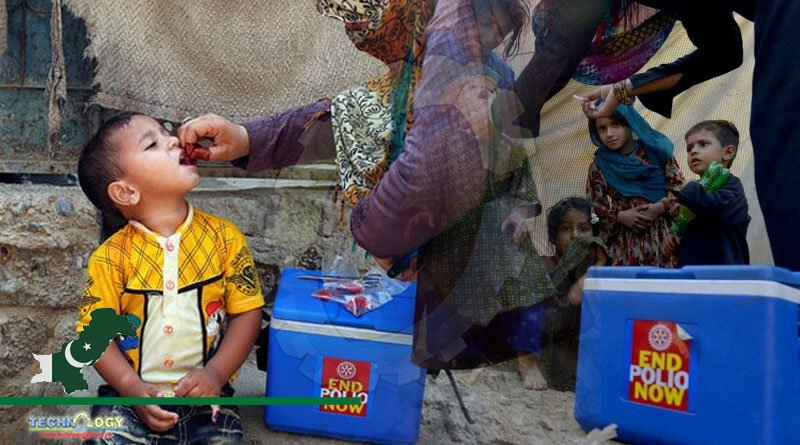Unicef has said the polio programme in Pakistan is back on track and expressed the hope that the crippling disease will be eradicated from the country by the end of 2023.

The United Nations Children’s Fund (Unicef) has said the polio programme in Pakistan is back on track and expressed the hope that the crippling disease will be eradicated from the country by the end of 2023, following effective measures to control its spread. The national immunization programme that has been running successfully for many years now has produced marvelous results but still falls short of a polio-free Pakistan.
Unicef’s Regional Director for South Asia George Laryea-Adjei said in an exclusive interview that the current data suggested that the virus was now under control in the country. Appreciating efforts of over 350,000 health workers, he said the programme is back on track to stop the wild poliovirus transmission in 2023.
Mr Laryea-Adjei said Pakistan was in a much better position today to eradicate polio than a year ago. However, there were challenges that hampered the efforts to eliminate the virus completely. He expressed concern over attacks on polio and health workers in some parts of Pakistan and lauded the courage of polio teams.
Highlighting the challenges, Mr Laryea-Adjei said the onslaught of back-to-back drought, heatwaves, floods and acts of violence continued to put millions of children’s lives at risk in Pakistan. He said the recent catastrophic floods destroyed vital health facilities and exacerbated health risks for millions of children, especially those living in districts historically at the highest risk for polio.
In the health sector, he said, 110 mobile health teams were providing critical health services to children, women and adolescents and Unicef was also assisting the national measles and rubella vaccination campaigns for children under the age of five in the flood-affected districts.
Moreover, he added, Unicef was working for water, sanitation and hygiene in the flood-hit areas as well. Unicef also built toilets and distributed hygiene and menstrual hygiene management kits, besides installing new taps and repairing critical water networks destroyed by the floods. The UN agency also established over 600 temporary learning centres to provide safe spaces for children to learn and play.
Divulging details of the activities of Unicef in northern areas at the outset of winters, he said the agency procured 16,000 warm clothing kits for children up to 12 years of age which were being dispatched for distribution in snowbound areas of Balochistan, Khyber Pakhtunkhwa and Gilgit-Baltistan. Moreover, around 15,000 blankets have been distributed in KP and Balochistan, he added.
Referring to the impact of climate change, he said it is profound throughout South Asia and in 2022 alone, climate-induced floods in Pakistan, Bangladesh, northern India, and Afghanistan left over 15 million boys and girls in need of assistance. He pointed out that summers were getting hotter, glaciers melting, sea levels rising, and landslides sweeping away homes and schools.
An awareness campaign must continue and it is also for the parents to fulfil their responsibility to get their children vaccinated to finally achieve the ultimate goal of polio free Pakistan.
Originally published at Dawn
